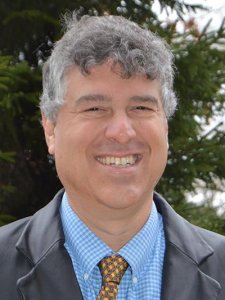Studying Earth's interconnected systems, climate and natural systems research helps us understand how human activities impact our planet's delicate balance, including climate change, to guide us towards sustainability.
From Research to Impact
Managing the risks of anthropogenic climate change poses significant challenges both now and in the future. Warmer and more extreme weather events will increase the risk of natural disturbances, increase the burden of pests and pathogens, threaten public health, and expose vulnerabilities in critical infrastructural systems. The burden of climate resilience and adaptation will fall unequally and inequitably, burdening people of color and rural and poor communities disproportionately.
Penn State has the critical mass to be a world leader in climate and natural systems. IEE’s commitment to supporting interdisciplinary research in energy and the environment means we have a unique opportunity to identify solutions to these impacts across natural, social, and built systems.
Major initiatives within this theme include but are not limited to climate variability and change, ecosystem productivity and biodiversity, stressors and resilience, food and water security, and polar science.
Penn State is dedicating research and its own activities to do everything possible to reduce carbon emissions. Penn State researchers, staff, and students are already addressing the challenges brought on by carbon emissions. It is Penn State's commitment to continue this important work.
Climate and Natural Systems Research
Featured IEE Researchers
More Researchers by Topic
Find more researchers studying climate and natural systems by clicking on any of the following topics:
Climate Change Climate Modeling Ecosystem Change Atmosphere Resilience Sea Level Habitat Carbon Ice Temperature Warming
Climate and Natural Systems News
Featured Stories
Institute of Energy and the Environment welcomes 15 new faculty members
Governor recognizes Penn State program for 30 years of geospatial data service
Mentions: Bruce Logan, Maurie Kelly
Penn State Climate Consortium
The Penn State Climate Consortium brings together researchers, educators, and community partners to address the challenges of a changing climate. Its work focuses on fostering collaboration across disciplines to generate research and practical solutions that support communities in Pennsylvania and beyond. By emphasizing evidence-based approaches and shared expertise, the Consortium seeks to inform policies and practices that can help society respond to climate impacts.
The Consortium supports this mission through programs and events that connect science, policy, and public engagement. The Climate Solutions Accelerator helps link academic research with organizations and communities working on climate issues, while the Climate Solutions Symposium provides a forum for sharing research findings and exploring potential responses. These efforts reflect Penn State’s commitment to advancing understanding and encouraging cooperative action on climate-related concerns.









